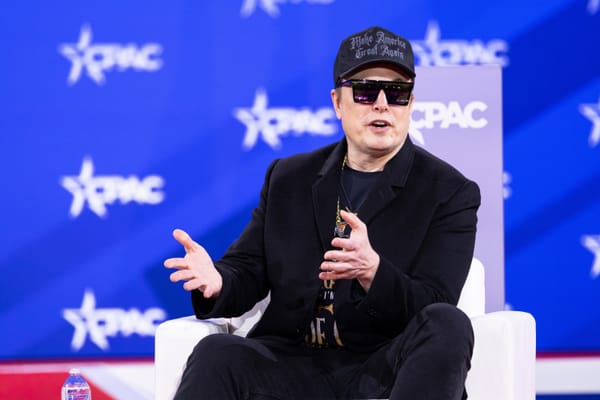She Warned About Silicon Valley 25 Years Ago. We Ignored Her.
Journalist Paulina Borsook warned that tech libertarians wanted an anti-human world that worked more like a computer

Yesterday, I published this thread on Bluesky, where it generated an unexpectedly large reaction. I am sharing a slightly modified version here.
A longtime Wired* editor just wrote a mush-brained essay about how he totally missed the political rot of Silicon Valley (and still doesn't get it).
But in the late 1990s, a different Wired journalist warned of a toxic ideology bubbling up from tech. Paulina Borsook, a freelance writer, has largely been erased.
Let’s change that.
In 2001, Borsook said tech “libertarianism” reflected an adolescent mindset, with a craving for unchecked independence and resistance to constraint.
She warned that tech libertarians wanted an anti-human world that worked more like a computer. From Cyberselfish: A Critical Romp Through The Terribly Libertarian Culture of High Tech, a book based on her 1990s writing:
It's an inability to reconcile the demands of being individual with the demands of participating in society, which coincides beautifully with a preference for, and glorification of, being the solo commander of one's computer in lieu of any other economically viable behavior.
Computers are so much more rule-based, controllable, fixable, and comprehensible than any human will ever be. As many political schools of thought do, these techno-libertarians make a philosophy out of a personality defect.
That’s tech fascism in a nutshell!
Borsook divided the tech “libertarians” into two main types: the Ravers and the Gilders. The Ravers are the ones who go to Burning Man and project countercultural ideas. The Gilders are the Peter Thiel types, more overtly focused on money and power. But they are birds of a feather.
Borsook warned that “cypherpunk” paranoia about government intrusion was leading them to create “a society where there is ever more surveillance and computer-retrievable information about people's private lives.”
Sound familiar?
Borsook also described “paranoid” anti-government rantings and a tech libertarian culture in which the “gestalt is of testosterone-poisoned guys with chips on their shoulders and too much time on their hands.”
And soon, these guys would morph into multi-billionaires.
During a decade in which the USA's favorite “tech critics” were busy shining the shoes of people like Marc Andreessen and Peter Thiel, Borsook saw very clearly where things were headed.
Because these things were obvious by the late 90s, at least to journalists as sharp as Borsook.
Unfortunately, Cyberselfish predicted the future but did not sell well.
Borsook’s writing career hit the rocks as tech fortunes skyrocketed astronomically in the 2000s. She is now elderly, disabled, and struggling to survive as the rest of the world finds out what she knew a long time ago.
I had lunch with Paulina in Oakland last month. Her life is hard, but she still has a lot to say! She’s trying to raise funds to reissue the book on the Internet Archive.
Some of her friends have a running GoFundMe to support her survival.
Instead of centering men who missed the boat (and still don't seem to get it), let's lift up the work of Paulina Borsook, who saw it all very clearly and tried to warn us 25 years ago.
Someone should do a profile of her very interesting life. And hey, let's drop some cash into her GoFundMe!
There are still some copies of the book available, but it deserves a reissue with an introduction by somebody famous.
In addition to being a prescient writer, Borsook had a pretty eventful and amazing life, and survived being shot in the head at the age of 14.
Paulina will definitely be in my book, but she deserves proper recognition in a major publication profile. I would do it, but I am writing a book. Someone should beat me to it!
I came across her work in the first chapter of the late David Golumbia’s Cyberlibertarianism: The Right Wing Politics of Digital Technology. She recently helped launch a new issue of the magazine In Formation and wrote some pieces.
Part of the reason we are in this mess today is because journalism’s favorite tech “critics” can get very rich and successful by conveniently ignoring the ugliest realities of Silicon Valley.
Meanwhile, writers like Paulina—who challenge power rather than serve it—end up out in the cold.
*I don’t link to the Wired essay because I try not to send clicks to things not worth reading. Time is precious!
**I did not intend this Bluesky thread as a fundraiser, but it unexpectedly resulted in an outpouring of financial support for Paulina.





